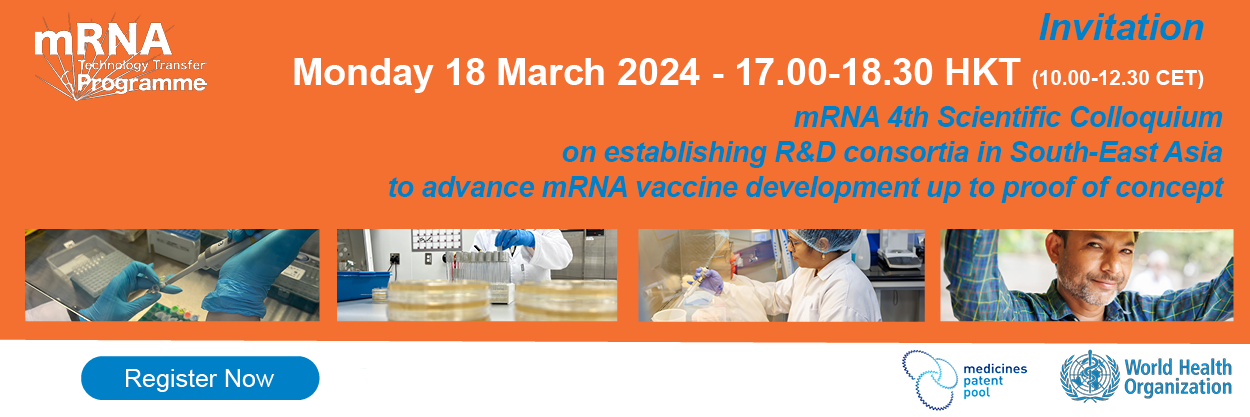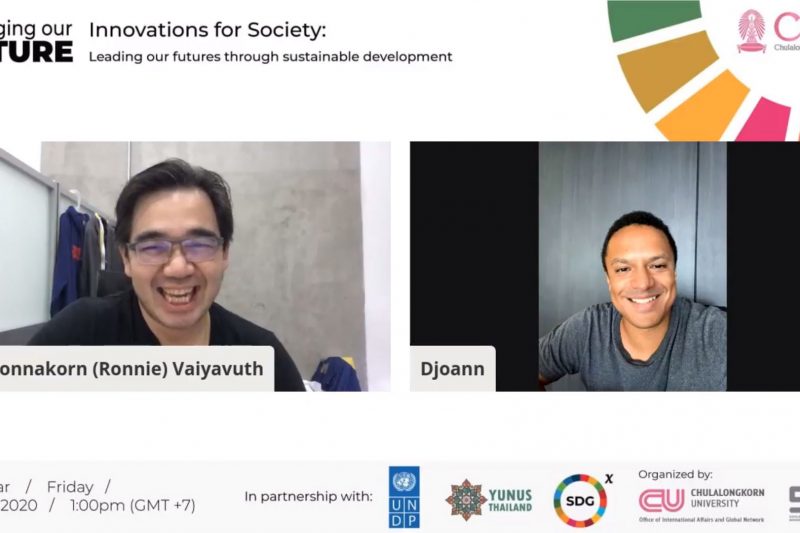mRNA 4th Scientific Colloquium on establishing R&D consortia in South-East Asia to advance mRNA vaccine development up to proof of concept

Thank you for joining the 4th mRNA Scientific Colloquium, an illuminating webinar where the latest developments in mRNA technology transfer programme was showcased, particularly the strides taken within the burgeoning R&D consortia in South-East Asia.
In the wake of the productive WHO/MPP regional meeting in Bangkok last November, we are excited to reveal how these newly formed consortia are leading the charge in driving mRNA research and development from concept to reality.
The organization lead for each consortium offered a presentation of their commitment to join the mRNA Programme and collaborate for the research and development against an endemic disease of the South-East region:
- Dengue Vaccine Progress: The International Vaccine Institute (IVI) as lead presented on dengue and R&D opportunities, in collaboration with Chula VRC, Chulalongkorn University, and manufacturing partners from Bangladesh and Indonesia.
- Battling HFMD: Hilleman Labs shared insights into the consortium’s efforts in hand, foot, and mouth disease (HFMD), alongside Chula VRC, Chulalongkorn University, the National University of Singapore, and Vietnamese partners.
- Therapeutic HPV Solutions: Discover the pioneering work of Chula VRC, Chulalongkorn University in spearheading the therapeutic human papillomavirus (HPV) and opportunities in mRNA product development.
- Malaria Vaccine Initiative: Learn about Mahidol University’s role in Plasmodium vivax malaria R&D, in collaboration with Chula VRC and Chulalongkorn University.
Following the presentations, an engaging panel discussion happened on how these regional R&D consortia are enriching the ecosystem in South-East Asia and beyond. Esteemed panellists from the Rights Foundation, the Asian Development Bank, the Hong Kong Jockey Club, CEPI, and Afrigen shared their valuable perspectives on regional R&D ecosystem and collaboration.
The mRNA Programme and this colloquium is more than an event; it’s a collaborative effort to empower low- and middle-income countries through cutting-edge mRNA technology, targeting diseases that significantly impact a region. We will also be looking ahead towards establishing further consortia in other regions in LMICs to contribute to a shared development agenda and by participating, you will be at the forefront of these transformative endeavours.
Others
Taking Research to Extremes
Marine biologist Suchana Chavanich’s curiosity takes her to the fascinating but highly challenging Antarctic
Thailand’s Medical Genetics Trailblazer
Research by Dr Vorasuk Shoterelersuk is leading to new diagnosis and treatment tools to ease suffering





